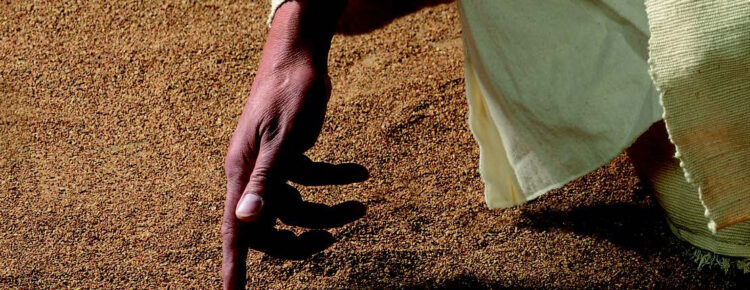Week 3 – Friday 25 March
“When they kept on questioning him, he straightened up and said to them, ‘Let anyone among you who is without sin be the first to throw a stone at her.’ And once again he bent down and wrote on the ground. When they heard it, they went away, one by one, beginning with the elders.”
Reading
John 8.1-11
while Jesus went to the Mount of Olives. Early in the morning he came again to the temple. All the people came to him and he sat down and began to teach them. The scribes and the Pharisees brought a woman who had been caught in adultery; and making her stand before all of them, they said to him, ‘Teacher, this woman was caught in the very act of committing adultery. Now in the law Moses commanded us to stone such women. Now what do you say?’ They said this to test him, so that they might have some charge to bring against him. Jesus bent down and wrote with his finger on the ground. When they kept on questioning him, he straightened up and said to them, ‘Let anyone among you who is without sin be the first to throw a stone at her.’ And once again he bent down and wrote on the ground. When they heard it, they went away, one by one, beginning with the elders; and Jesus was left alone with the woman standing before him. Jesus straightened up and said to her, ‘Woman, where are they? Has no one condemned you?’ She said, ‘No one, sir.’ And Jesus said, ‘Neither do I condemn you. Go your way, and from now on do not sin again.’
Reflection
It is easy to reduce justice to rules and principles, and forget real, complicated people, with their history and relationships.
But if real people disappear, justice does too. If we turn people into caricatures, fail to understand their journey, and how others have shaped their choices, justice fails. Here, Pharisees shame a woman caught in adultery, and quote the rules.
It isn’t that rules don’t matter – Jesus makes that clear when he tells her to ‘sin no more’. But he sees a whole person, brought alone for a crime that can only be committed jointly. His response forces the Pharisees to see themselves as equal to the woman: sinners needing grace. The woman is humanised, by being treated with grace, and by being held responsible for her life going forward. The Pharisees are humanised, too – no longer faceless, perfect judges, but fellow fallible humans. True justice is a meeting of persons.
Prayer
Loving God, help us see the face and the life of those we like to condemn for their failings. Give us the grace to hold together accountability and mercy. Amen.
Today’s family challenge
Pray for those who need a fresh start
Jesus treated everyone – even those who had done wrong – with dignity, and offered them hope.

